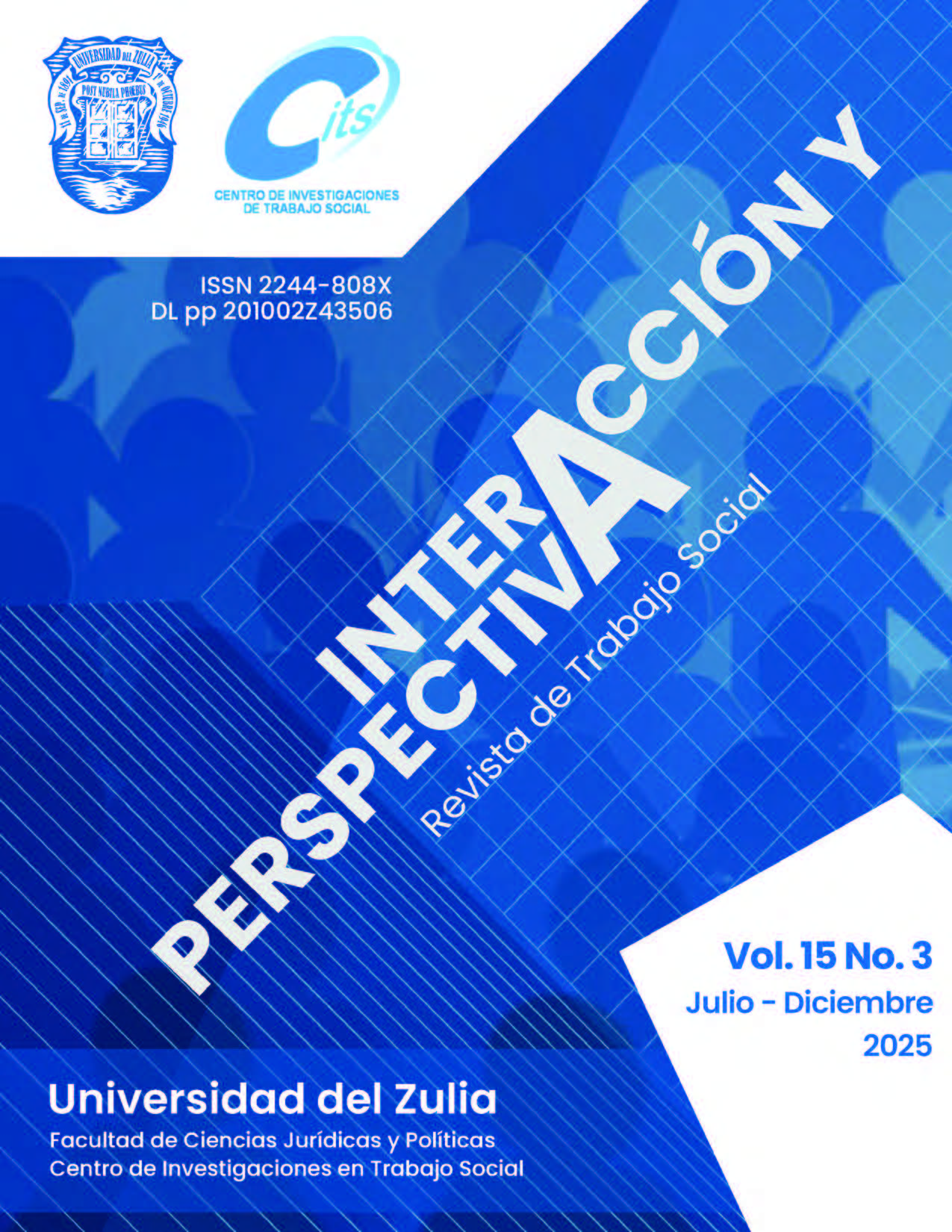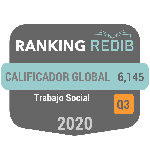Community resilience and situated knowledge. Educational strategies for socioecological transition in the 21st century
Abstract
The objective of this research is to philosophically discuss the phenomenon of community resilience and situated knowledge, from the point of view of contemporary social theory, to imagine how educational strategies can be promoted for the achievement of socioecological transition in the 21st century. To guide this objective, some cross-cutting questions arise, such as: How is community resilience configured in contexts of socioecological crisis and what role does situate knowledge play in its development? Or how can the experiences of communities in extreme situations, such as the Ukrainian case, provide transformative educational models? In accordance with the thematic essence, in methodological terms we start from a constructivist and post- modern conception of situated knowledge. Hermeneutic observation and three different reading techniques were used to process the documentary sources of information. It is concluded that, the creation of a social theory on the subject, provides knowledge to scientifically understand resilience as a process of collective creation rather than as simple resistance, which offers a framework to rebuild social fabrics in conflict zones through radically contextualized pedagogies that transform social trauma into socio- ecological potential.
Downloads
References
Boichak, O. (14 de February de 2023). Volunteers drive social change in wartime Ukraine. Obtenido de The Univresity of Sidney: https://www.sydney.edu.au/news-opinion/news/2023/02/14/volunteers-drive-social-change-in-wartime-ukraine-expert-research.html
Consejo General de la Psicología de España. (30 de enero de 2025). El papel clave del apoyo social en el aumento de la resiliencia y del afecto en los ucranianos no desplazados, tras un año de guerra. Obtenido de https://www.infocop.es/el-papel-clave-del-apoyo-social-en-el-aumento-de-la-resiliencia-y-del-afecto-en-los-ucranianos-no-desplazados-tras-un-ano-de-guerra/
Deineko, O. (2023). Ukraine, War and Resistance: Reshaping Social Cohesion. Studia Socjologiczne, 2 (249), 155–177. DOI: 10.24425/sts.2023.146173.
European Union. (19 de may de 2022). European data. Obtenido de The official portal for European data: https://data.europa.eu/en/publications/country-insights/ukraine/how-open-data-helps-ukraine-during-war
Ferrater Mora, J. (2004). Diccionario de Filosofía E-J. Barcelona: Ariel Filosofía.
Foucault, M. (2002). Las palabras y las cosas Una arqueologia de las ciencias humanas . Buenos Aires : Siglo veintiuno editores Argentina .
Freyre, M. L. (2013). El capital social. Alcances teóricos y su aplicación empírica en el análisis de políticas públicas. Ciencia, Docencia y Tecnología, XXIV (47), 95-118. https://www.redalyc.org/pdf/145/14529884004.pdf.
Haraway, D. (1988). Situated Knowledges: The Science Question in Feminism and the Privilege of Partial Perspective. Feminist Studies, 14 (03), 575-599. https://philpapers.org/archive/harskt.pdf.
Kharchenko, T., Hatska, L., Sagaydack, J., & Chubuk, L. (2020). Education System Environmentalization in Ukraine within the Modern Context. Journal of Environmental Management and Tourism, 11 (03), 704-713. https://doi.org/10.14505//jemt.v11.3(43).24.
Lopushniak, H., Verkhovod, I., Oleksenko, R., & Vonberg, T. (2024). Assessment of the social protection system reform in the context of achieving the sustainable development goals. Interacción y Perspectiva, 14 (01), 26-42. Doi: 10.5281/zenodo.8319394.
Lyotard, J.-F. (1989). La condición postmoderna. Informe sobre el saber. Madrid: Catedra.
Martinez Miguelez, M. (2004). Ciencia y arte en la metodologia cualitativa. Mexico DF.: Editorial Trillas.
Moreno Olmedo, A. (2008). El aro y la trama Episteme, modernidad y pueblo. Miami: Convivium press.
Moret-Tatay, C., Zharova, I., Cloquell, A., Pérez-Bermejo, M., Murphy, M., & Arteaga, F. (2025). Social Support Increases Resilience and Affect in Non-Displaced Ukrainians and Refugees After a Year of War. Psicothema, 37 (1), 21-31. https://www.infocop.es/wp-content/uploads/2025/01/4869.pdf.
Neill, C. (15 de march de 2025). Beyond the battlefield: the unwavering resilience of Ukrainian society. Obtenido de Science Blogs: https://doi.org/10.57708/BINKWFDBOQE6XX-PKXNYS7YA
Nussbaum, M. (2012). Crear capacidades Propuesta para el desarrollo humano. Barcelona: Paídos.
Samán, S., Mendoza, W., Miranda, M. d., & Esparza, R. (2022). Resiliencia y competitividad empresarial: Una revisión sistemática, período 2011-2021. Revista de Ciencias Sociales, XXVIII (03), 01-11. https://www.redalyc.org/journal/280/28071865021/28071865021.pdf.
Sanchez, A. (2011). Manual de redacción académica e investigativa: cómo escribir, evaluar y publicar artículos. Medellin : Católica del Norte Fundación Universitaria.
Spivakovsky, O., Omelchuk, S., & Malchykova, D. (2025). Crisis response strategies of universities during the ongoing war: Beyond experience and responsibilities. Problems and Perspectives in Management, 23 (2-si), 121-135. Doi:10.21511/ppm.23(2-si).2025.09.
The World Bank Group. (12 de marzo de 2025). Population, total Ukraine. Obtenido de https://data.worldbank.org/indicator/SP.POP.TOTL?locations=UA
Ungar, M. (2013). Resilience, Trauma, Context, and Culture. Trauma, Violence, & Abuse, 14 (3), 255-266. Doi: 10.1177/1524838013487805.
Vanistendael, S. (2004). Resiliencia y espiritualidad. Buenos Aires: Bureau International Catholique de l’Enfance.
Verkhovod, I., Oleksenko, K., Chernenko, O., Semenova, O., & Mazurenko, Y. (2024). Distance education in the system of factors of adaptability of the social sphere of Ukraine. Interacción y Perspectiva, 15 (1), 171-181. https://doi.org/10.5281/zenodo.14031.
War Child . (30 de enero de 2025). Bridging the Gap in Education for Ukraine’s Displaced Children: How War Child’s Can’t Wait to Learn is Making a Difference. Obtenido de https://www. warchild.net/news/bridging-the-gap-in-education-ukraines-children-cant-wait-to-learn/

















